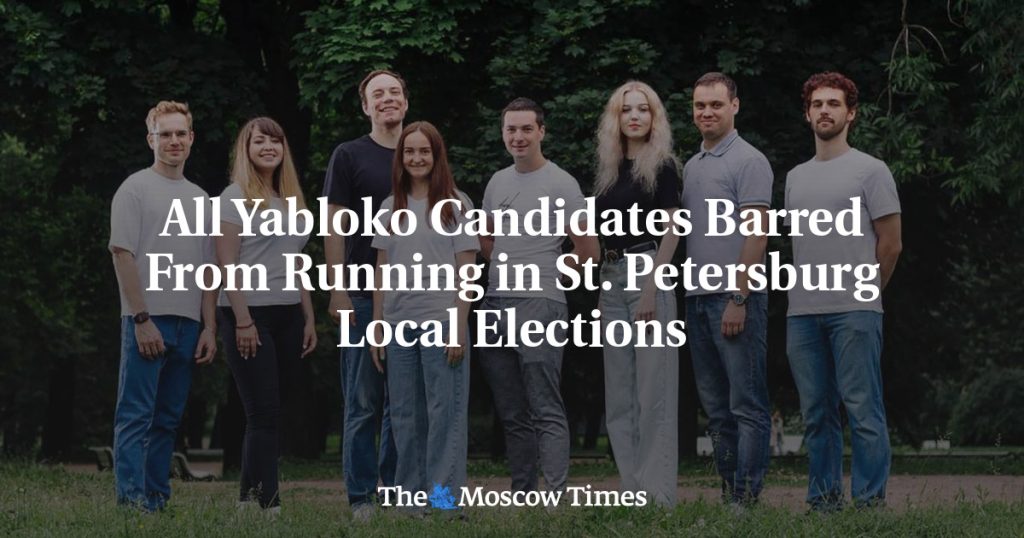Election authorities in St. Petersburg have recently rejected all 83 candidates from the liberal opposition party Yabloko who sought to run in the upcoming municipal elections. These candidates were barred from the ballot, in what Yabloko spokesman Dmitry Anisimov characterized as “political orders” from above. The party plans to appeal these rejections in court, as they believe this is a deliberate attempt to limit their representation in the city’s municipal councils.
This move comes in the context of increasing repression against opposition figures in Russia, particularly since the full-scale invasion of Ukraine more than two years ago. Many opposition members have been jailed, forced into exile, or banned from running for political office. In May, President Vladimir Putin signed a law banning “foreign agents” from running for public office, which includes some high-profile members of Yabloko. These actions highlight the ongoing crackdown on dissenting voices in the country’s political landscape.
In addition to members of Yabloko, even candidates from the Communist Party, which often aligns itself with Kremlin policies, faced similar rejections from election authorities in St. Petersburg. This suggests a broader trend of limiting political opposition in the city, where the pro-Kremlin United Russia party holds a majority in over 100 municipal councils. The rejection of candidates from both Yabloko and the Communist Party reflects a concerted effort to consolidate power and control over local government bodies in St. Petersburg.
The situation in St. Petersburg is indicative of the challenges faced by opposition parties in Russia, where the ruling establishment is increasingly clamping down on dissenting voices. By barring candidates from running in municipal elections, authorities are effectively silencing opposition voices and limiting the diversity of political representation in the city. This trend is part of a wider pattern of repression against opposition figures, with many facing legal restrictions and harassment for their political activities. The refusal to allow Yabloko candidates to run underscores the erosion of democratic norms and freedoms in Russia’s political landscape.
As Yabloko plans to appeal the rejections in court, the outcome of this legal challenge could have implications for the future of opposition politics in St. Petersburg. The party’s determination to contest the decision reflects a commitment to upholding their right to participate in the democratic process, despite facing significant obstacles and restrictions. The outcome of this legal battle will also be closely watched by observers and international stakeholders, as it will indicate the extent to which political opposition is able to challenge the ruling establishment in Russia’s municipal elections. Ultimately, the fate of Yabloko’s candidates will shed light on the state of democracy and political pluralism in St. Petersburg.


